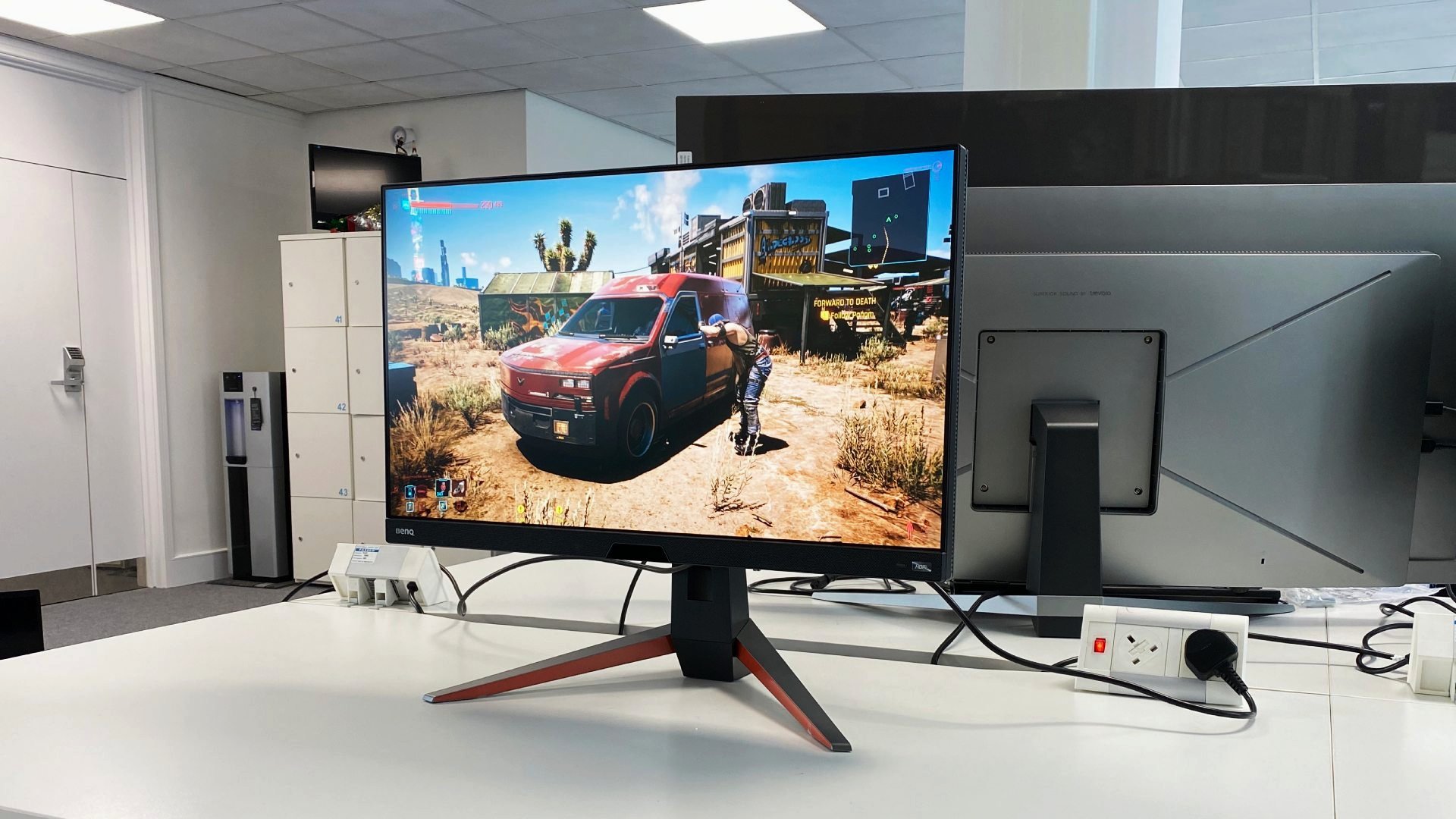GamesRadar+ Verdict
The new BenQ Mobiuz EX270QM is a really strong all-round 1440p gaming monitor with a sweet IPS panel, slick 240Hz refresh, and great pixel response. But it's just too pricey for this class of display, despite a few nice extras, and it certainly isn't a good choice if you want a great HDR experience.
Pros
- +
Sweet 1440p IPS panel
- +
Nippy 240Hz refresh
- +
Very quick response
Cons
- -
Not a true HDR panel
- -
It's too expensive
Why you can trust GamesRadar+
The BenQ Mobiuz EX270QM would have you believe that the sweet spot for modern PC gaming, and the best compromise between graphical eye candy and slick performance is 1440p rather than 4K. With today's graphics card prices, there are plenty of folks who would agree with that sentiment. But where should the price trade-off be? Should a 1440p panel be as expensive as many otherwise similar 4K gaming monitors?
In fact, the Mobiuz EX270QM isn't far off the price of some 40-inch-plus 4K OLED TVs - as is common with plenty of the very best gaming monitors. But it clocks in at just 27 inches. It doesn't even offer true HDR performance, though we'll get into that in more detail in a moment. Can any of this possibly make sense? Perhaps.
For starters, this monitor isn't about size. It's about balancing speed with precision. The 1440p native resolution makes for decent pixel density on a mere 27-inch panel. 1440p also means you have half a chance of achieving high frame rates without the need for a $1,500 graphics card. This is handy considering this display will run all the way to 240Hz - well over the qualifying threshold of the best high refresh rate monitors. In other words, this is a pure close-quarters desktop gaming monitor, not a large living room display that might double as a TV.
It does have HDMI 2.1 connectivity, so you can hook it up to one of the latest high-refresh games consoles. But its native resolution isn't exactly ideal, even if the Xbox Series consoles have pretty good 1440p support and the PS5 added limited 1440p support last year.
Anyway, the BenQ Mobiuz EX270QM is certainly more of a pure PC gaming panel than an all-round multimedia monitor. But if the value comparison with 4K TVs arguably isn't that relevant, the BenQ Mobiuz EX270QM still has plenty to prove versus other gaming monitors at this price point. Just as a 'for instance', the Alienware AW2723DF is another premium high-refresh 1440p panel that runs slightly faster at 280Hz but actually undercuts the Mobiuz in price. Ouch.
Design and Features
BenQ's Mobiuz gaming monitors have sported the same signature style for a few years now and the new EX270QM does little to deviate from the familiar predominantly black construction with dashes of silver and orange, plus a fairly low-key RGB lighting system. The build quality is decent if not spectacular, and the overall vibe is reasonably contemporary if not exactly cutting edge. It's a decent-looking monitor. But it probably doesn't look as expensive as it is.
Either way, this is a totally flat panel, definitely not one to consider if you're on the hunt for the best curved gaming monitor, which makes sense on a fairly compact 27-inch screen. Furthermore, you get pretty slim bezels on three sides as well as a slightly chunky chin. For connectivity, there's a DisplayPort 1.4 interface, which is optimal for PC usage. The two HDMI 2.1 ports will actually do the full 240Hz, though remember that the two major consoles only go up to 120Hz.
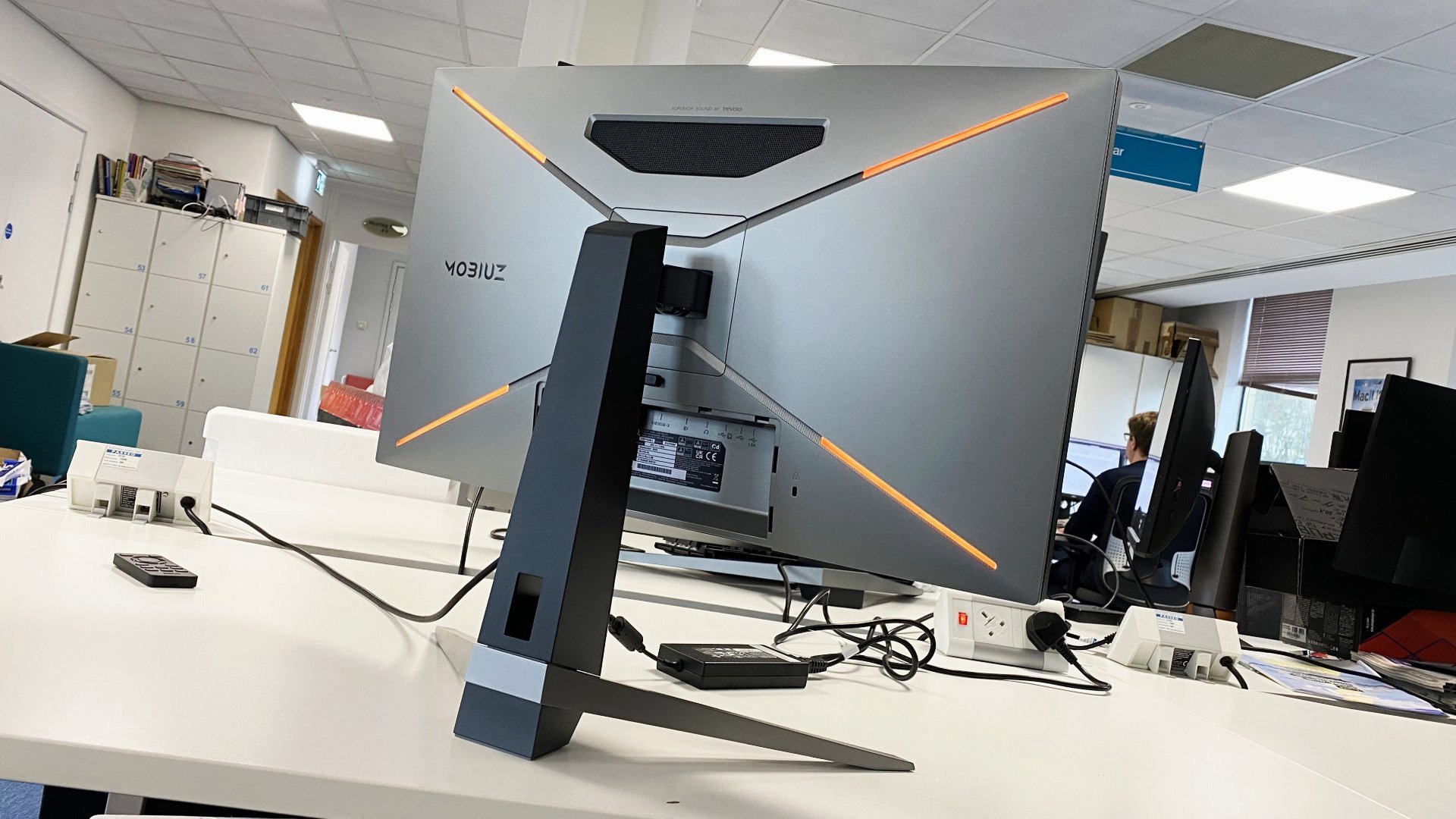
There's also a USB-A hub, though no USB-C connectivity. The latter is primarily of concern for single-cable connectivity with laptops and isn't a critical feature in a gaming context, even if it would make this monitor a stronger all-rounder. Helping very slightly to justify the premium pricing, BenQ bundles an IR remote for easy access to the OSD menu and there's a full speaker system built into the display, including a 5W subwoofer, which is something you don't see often on monitors of this size.
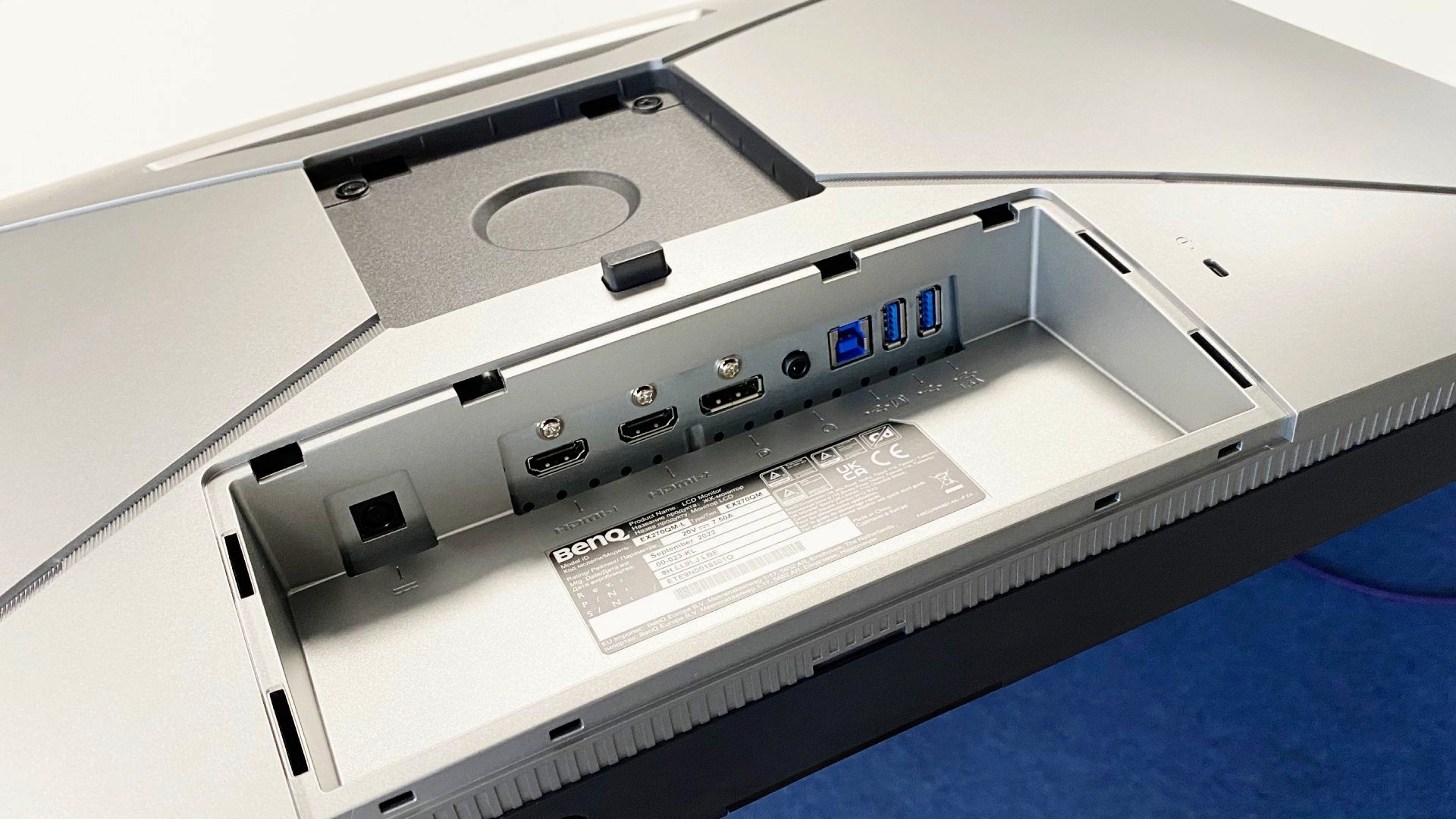
For the record, the BenQ Mobiuz EX270QM does support HDR with local dimming. However, the latter is of the edge-lit variety. BenQ doesn't quote a dimming zone count, but it's likely something in the region 16 zones and so definitely does not have the makings of a true HDR experience, even if the peak brightness of 600 nits does at least ensure that this monitor has plenty of punch.
Along with the 240Hz refresh, you get support for adaptive refresh in both Nvidia G-Sync and AMD FreeSync flavours. Adaptive refresh is also supported on consoles, but be aware that the PS5 doesn't do adaptive refresh at this monitor's native 1440p resolution. You'd have to step down to a very suboptimal 1080p for that.
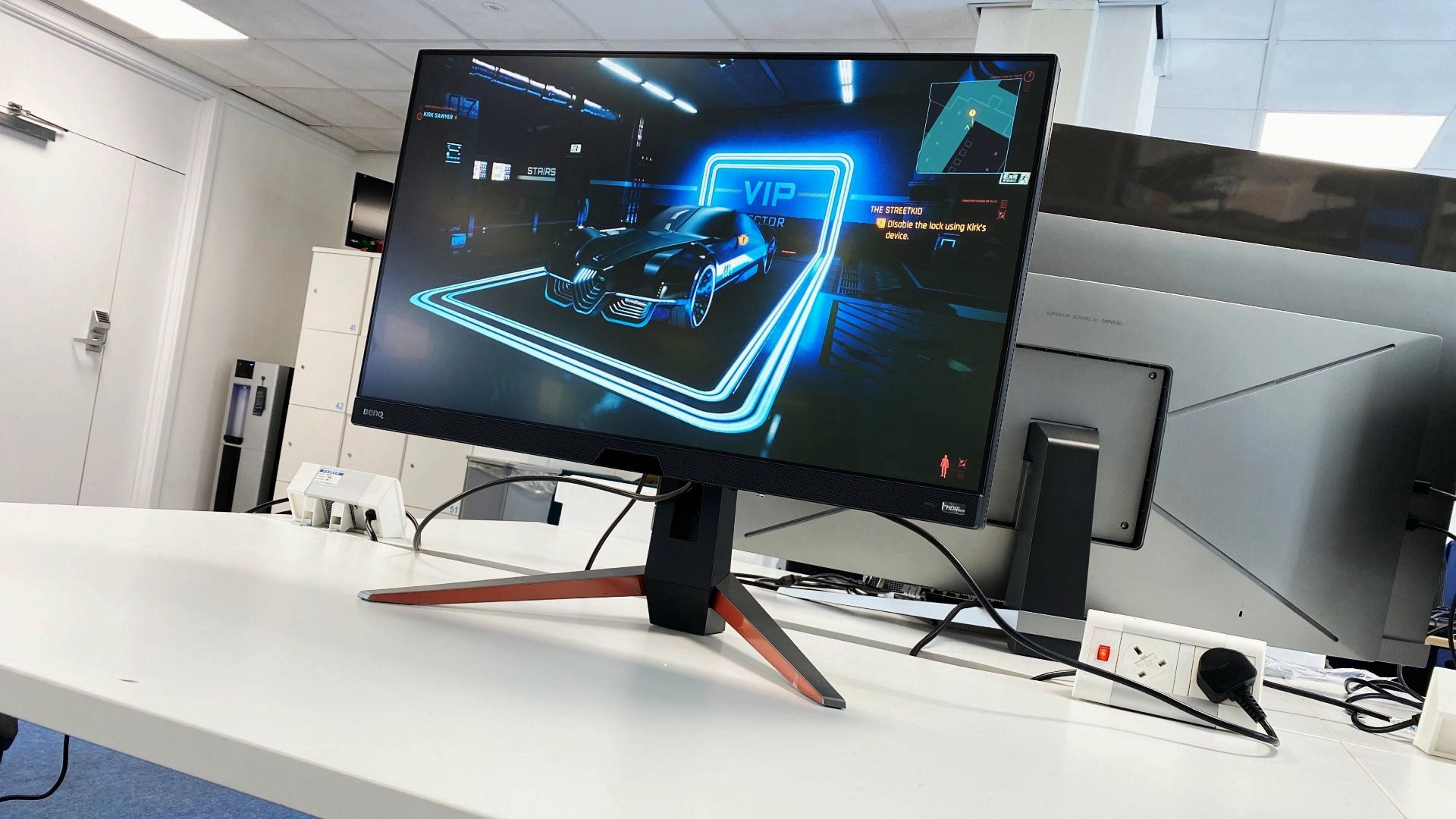
Performance
Initial impressions are of a really punchy, nicely calibrated monitor. The BenQ's image quality is super crisp, its white tones ultra clean and bright. In short, it looks great when you boot into Windows. Of course, as an IPS monitor, the panel's inherent contrast is relatively weak and the limited local dimming capability does little to help with that.
For context, as IPS panels go the black levels are fine. But if you're used to an OLED display, the light bleed and viewing angles will be distinctly unimpressive. In better news, this screen handles SDR content really nicely when running in HDR mode. If you're wondering what the importance of that is, it means you can run this monitor and indeed the Windows OS on your best gaming PC in HDR mode all the time, and SDR content will look great, saving you the hassle of switching back and forth between SDR and HDR modes as and when you fire up an HDR-capable game.
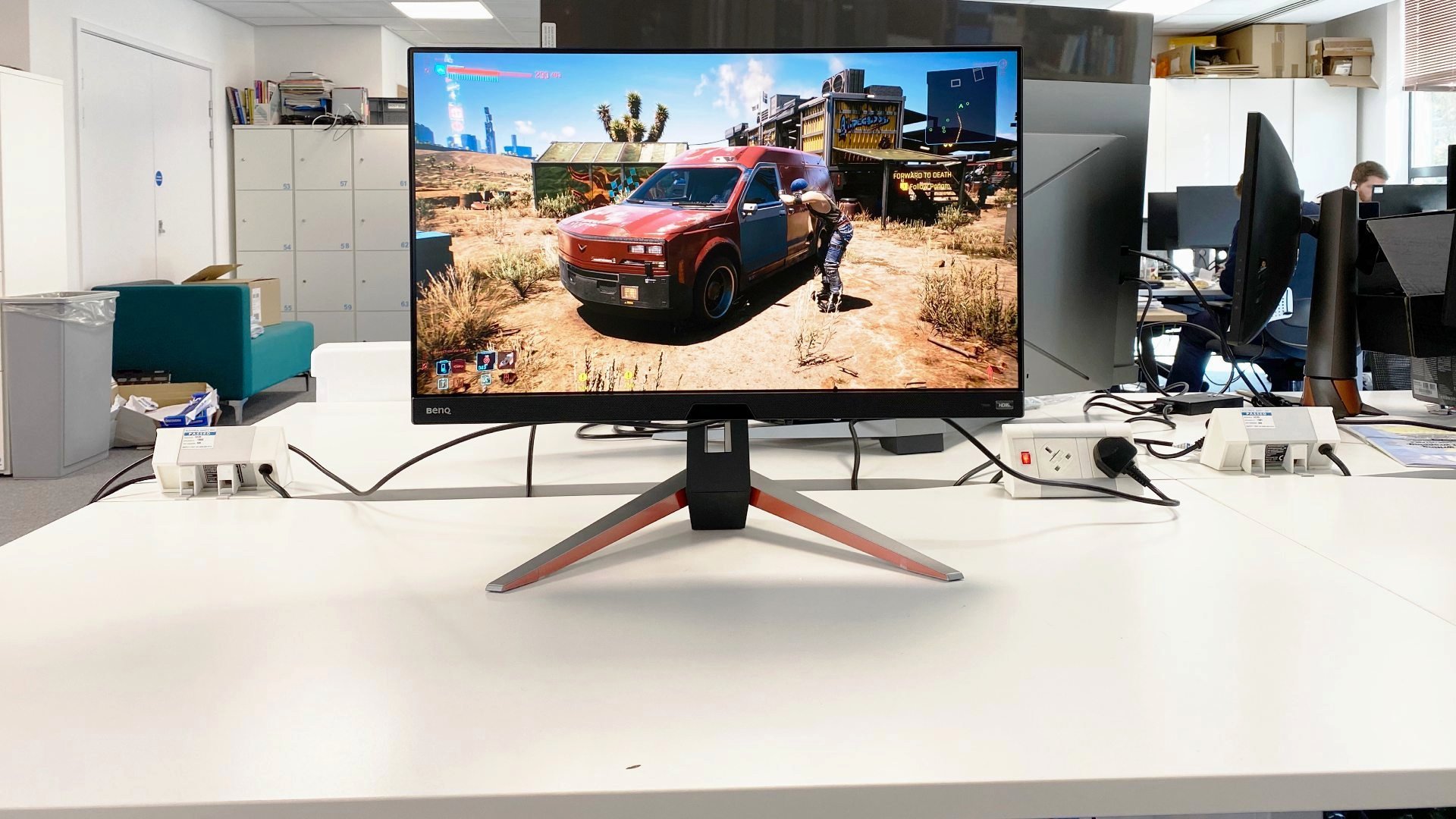
As for the actual HDR experience, well, that handful of edge-lit local dimming zones doesn't add much to the experience. However, the strong backlight does make for a zingy HDR look in brighter outdoor game scenes. It's darker images where this type of display struggles, the panel's contrast just can't do bright objects on dark backgrounds properly.
How much does that matter? It's a bit of a niggle, say, when you're playing something like The Last of Us and want to enjoy the dark and inky atmospherics as you creep around underground with your flashlight. But most of the time, it's not a major issue.

More unambiguously successful is the panel's pixel response, at least for an IPS rather than an OLED screen. BenQ does not appear to offer any user-configurable overdrive options in the OSD, which is unusual. But the default config is really quick for this panel type and there's little if any visible overshoot or inverse ghosting. If you're looking for a monitor that will do justice to graphics fests like Cyberpunk 2077 but also has the speed to keep you competitive in Counter-Strike 2, the Mobiuz EX270QM certainly delivers. It's a very strong all-rounder.
Where it can't compete, either in response terms or for HDR performance, is with the new breed of OLED gaming monitors, like the BenQ Mobiuz EX480UZ. Even though we weren't the biggest fans of that display, some OLED monitors can be had in exactly the same 1440p 27-inch form factor and with the same 240Hz refresh as this one.
Admittedly, the cheapest current option in that area, the LG UltraGear 27GR95QE-B, clocks in at around $1,000. So, it's significantly more expensive. OLED panels can be problematic for PC usage, too, in terms of full-screen brightness and the risk of burn-in. So, even at the same money, the comparison wouldn't be a clean sweep for the OLED option.
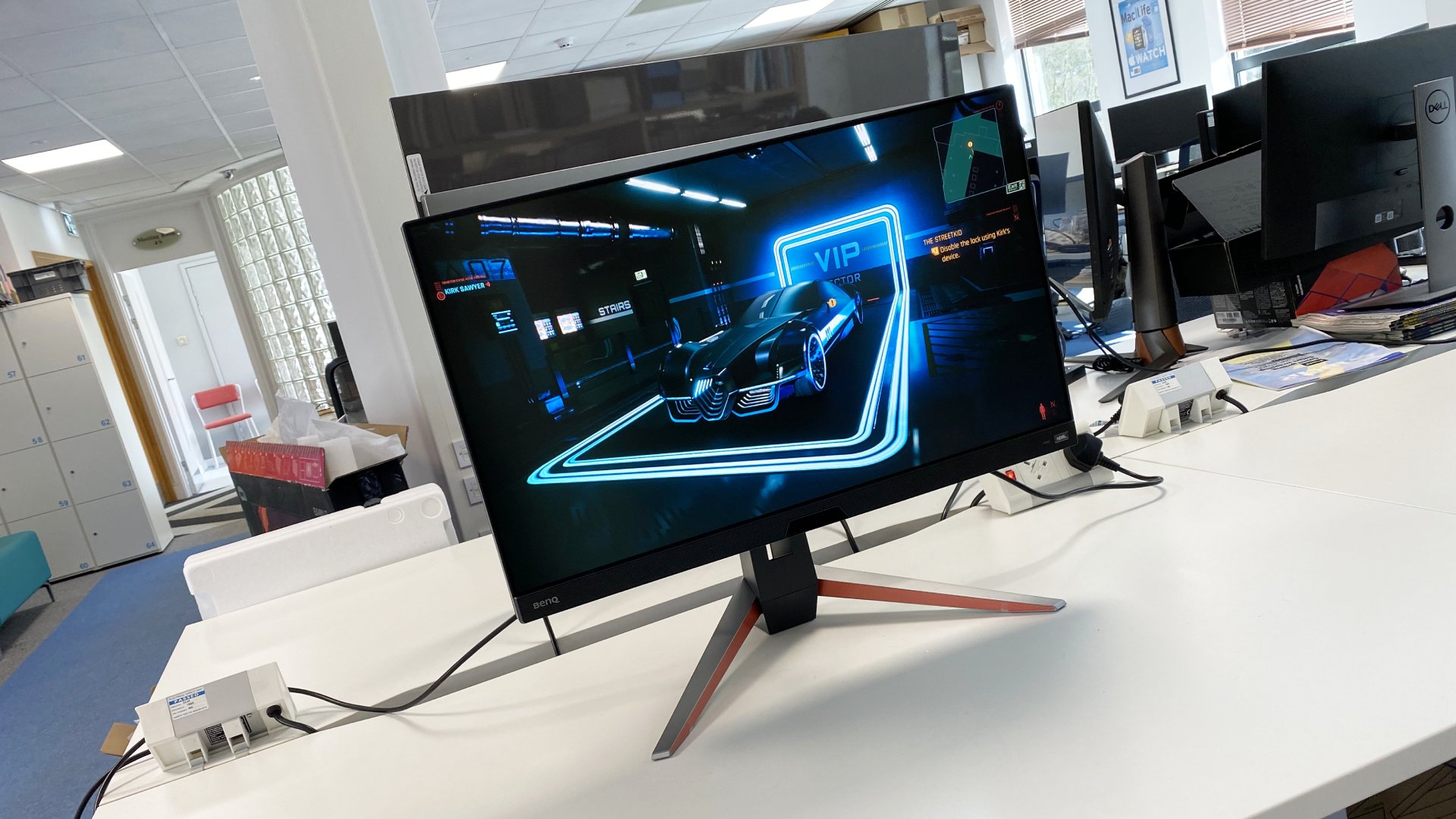
Should you buy the BenQ Mobiuz EX270QM?
So, the real problem is just how expensive this monitor is within its class. The Alienware AW2723DF delivers a very similar experience for less money. If you ever find yourself priced above an equivalent Alienware product (none of which are exactly renowned for price competitiveness) it's time to ask if you're doing it right.
Arguably even harder to justify is the premium over a decent 34-inch ultrawide monitor. Admittedly, that tends to limit you to 160Hz or thereabouts, rather than the full 240Hz. But for most gamers, the returns diminish above 160Hz and the scale and immersion of a 34-inch ultrawide monitor certainly make up for a little lost refresh.
All of this means this is certainly a great all-around gaming monitor, at least for PC rather than console gaming. But the pricing puts it in a pretty small niche for gamers who insist on that combination of really high refresh with 1440p resolution. And even then, an Alienware alternative is always hard to ignore.
How we tested the BenQ Mobiuz EX270QM
Modern gaming monitors have to be good as so many things. They need to be quick, both in terms of response and refresh. They need to be bright and accurate. Ideally, they'll have at least half-decent HDR support, along with plenty of connectivity options, good build quality, and solid ergonomics. Then there are more fundamental factors, like resolution and aspect ratio, not to mention size and price. All of this and more is considered as we cast our beady eyes over any gaming monitor. From cheapo 1080p panels to the latest OLED and mini-LED tech, we've seen it all and we'll tell you exactly how this panel fits into the overall pecking order.
If you want to read more about how we test the latest gaming displays at GamesRadar, have a gentle peruse of our hardware policy while listening to your favorite podcast.
Deck out your gaming setup with the best gaming mouse, the best gaming keyboard, and the best gaming chair.
A serious dissertation on the finer points of input lag and overshoot followed by a forensic examination of AI-accelerated temporal upscaling. Such is a routine day in the working life of long-time tech wordsmith, Jeremy Laird. Along with GamesRadar, Jeremy’s 15-year back catalogue includes a host of tech and gaming outlets, including TechRadar and PC Gamer, not to mention contributions to mainstream media from the Independent to the Evening Standard. Complimenting Jeremy’s debilitating addiction to all kinds of digital hardware, he is also afflicted by an obsession with and a significant occupational sideline in cars and automotive technology.
